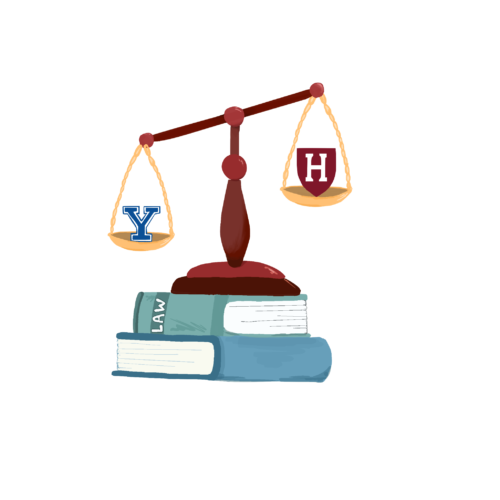Just hours after Yale Law School announced its official withdrawal from the U.S. News & World Report’s Rankings on November 16th, Harvard Law School followed suit. Yale’s decision became a catalyst for an exodus of other prestigious law schools from the annual report, including Stanford, Georgetown, Berkeley, and Columbia.
While I’ll admit I appreciate discovering which of the top five spots my higher education institution falls into each year (perhaps subconsciously validating my status as a college student), this superficial sense of superiority ignores and discredits the thousands of students who might have similar, or even more promising, academic qualifications than I do. University rankings falsely order institutions and their students on a system that often fails to consider individual merit, qualifications, or trajectory.
Columbia University’s fraudulent data submissions, exposed by Columbia mathematics professor Michael Thaddeus this past summer, pressured the university to withdraw. Thaddeus published a twenty three page release of the findings behind his investigation of Columbia’s legitimacy in rankings, revealing discrepancies in reported numbers of class size, faculty with terminal degrees, student-faculty ratios, graduation rates, and other spending data.
While Thaddeus recognized that these rankings provide helpful information, especially for college applicants, in deciding which schools to apply, the ultimate anguish that rankings cause in pitting colleges and universities against each other—grading institutions on often unquantifiable, or highly personalized measures, does not justify their contributions towards universities’ credibility. The goal for universities then becomes the ability to achieve, in Thaddeus’ words, “a proxy for merit, rather than merit itself.”
While Columbia’s transgressions do not compare to Harvard’s or Yale’s sovereign choices to withdraw, all three schools have moved to delegitimize rankings as measures of a school’s merit.
Although certain schools offer more opportunities for their students than others, a definitive, numeric ranking system draws lines between qualities that can’t really be quantified. Harvard professor and renowned philosopher Michael J. Sandel recognizes that categorizing certain institutions as “prestigious” or not is somewhat arbitrary. “For the top sixty or eighty colleges and universities, the quality of education and academic performance would not be noticeably different,” he writes in his book Tyranny of Merit.
Unlike undergraduate institutions, law schools provide a much more streamlined experience, offering courses, programs, and resources to a student body of relative academic homogeneity. This specialized nature of law school, as with most graduate schools, yielded a smaller range of ranking variability, as the number of course offerings and programs between the top schools resemble each other. Since 1990, the annual law school rankings have been more rigid than college rankings, with Yale Law taking the lead for the past thirty years.
“It never really made much sense to me why schools were providing data to a private, for-profit, magazine in a way that enabled the magazine to exert influence on the decisions law schools were making with respect to where they allocated their resources,” said Mussab Ali, current third-year Harvard Law student and co-president of the Harvard Law School Graduate Council.
“I don’t think that they accurately reflect the quality of a university because the metrics are constantly changing and don’t necessarily reflect what a university is investing in with respect to support for their students,” Ali continued.
Ali was referring to the U.S. News and World Report’s use of students’ debt metrics, test scores and college grades, and graduation employment and unemployment rates. These measurements, announced by the schools themselves and grossly biased to satisfy the Report’s calculations, have made universities focus not on incubating student well-being but on climbing the ladder of a singular ranking system.
“Getting rid of the rankings process is going to be really good for the university to be able to enact changes in its admissions process, in its student body, and how it funds certain programs without a concern for dropping in the rankings,” said Chloe Kimball, a first-year student at Stanford Law. The school also withdrew its participation in the Report just two days after Harvard and Yale, with an announcement from Stanford Law School Dean Jenny Martinez claiming that the list “distorts incentives in ways that are harmful to legal education as a whole.”
“This is going to have a really positive effect on the diversity of the students and diversity of the education provided,” Kimball expressed.
“I did not refer to the ranking before applying to law school and it did not bear any relevance to me,” said Harvard Law student from Poland Ewa Tokarewi. “My decision to apply to Harvard specifically was rather based on the general prestige and relevance of the school rather than a ranking.”
Stanford and Yale, like Harvard, benefit from what Ali refers to as a “historical prestige” that is unaffected by “the number of applications we receive each year.” Other top law schools will likely not suffer from being left out of the rankings due to their established credibility around the world.
Even for schools that do not to get into the Report’s top 14 or “T-14,” earning a national ranking on the list improves the reputation of smaller, lesser-known schools, in effect encouraging more and higher-quality applicants and expanding their career opportunities upon graduation. Prospective students and law firms are more inclined to apply to or hire graduates from those schools.
Yet this arbitrary ranking system—essentially a rat race for law schools to lower their acceptance rates and graduate the most students into high-paying firms—should not hold the level of national or global significance that it currently does. Insofar as we continue to regard only what the U.S. News and World Report deems “prestigious,” we will continue to perpetuate the same cycle of glorifying certain schools and shaming others.
Marbella Marlo ’24 (mmarlo@college.harvard.edu) is frantically studying for the LSAT.

